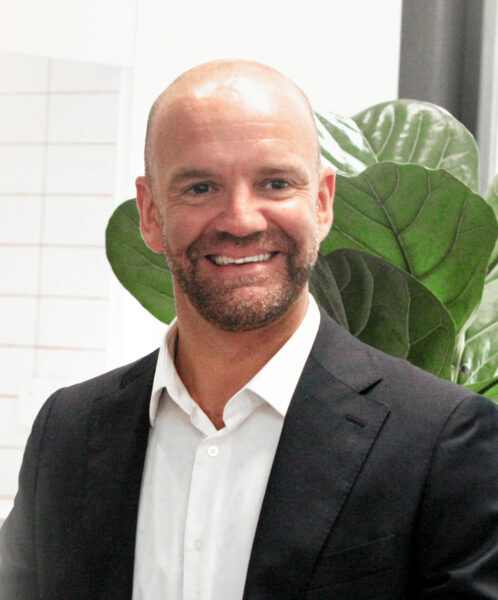Workers are prioritising equity and flexibility, as career progression takes a back seat, according to a new global report.
Randstad’s latest Workmonitor report, which surveyed 27,000 workers in 34 markets across Europe, Asia Pacific and the Americas, including 1,000 New Zealanders, shows that while 42% of workers consider themselves to be ambitious, this doesn’t correlate to the traditional understanding of career aspirations.
One third (30%) of workers are not focused on progression at all, with over half (55%) willing to stay in a role that they like, even if there’s no room to progress or develop.
Richard Kennedy, country director of Randstad New Zealand, says in a statement that this year’s research demonstrates that a one-size-fits-all talent policy is not sustainable.
Today’s workforce know what they want and equitable, flexible workplaces are key to this
“Today’s workforce know what they want and equitable, flexible workplaces are key to this. To them, ambition has become more than climbing the corporate ladder, and motivations are no longer driven by promotions. Talent are looking for like-minded partnerships where they can present their authentic selves and work with employers to improve equity in the workplace.”

Richard Kennedy
Kennedy says that at the same time, workers are proactively positioning themselves to stand out in an increasingly competitive market.
“Trends such as the impact of breakthrough technologies like Generative AI will be felt more keenly than ever as the rate of adoption accelerates. The emphasis isn’t just on understanding technology but leveraging it to solve real-world problems.”
Ambition vs motivation
The Randstad report also finds workers are more likely to consider flexibility of working hours (82%) and mental health support (86%) as important – more so than career ambition (42%).
However, the company says the research indicates that not wanting career progression does not mean employees have no interest in self-improvement, with over three quarters (77%) ranking training and development opportunities as important.
Meanwhile, nearly one fifth (22%) would quit a job if they weren’t offered learning and development opportunities to future-proof their skills, such as management and leadership skillsets (31%) and training on AI (24%).
Kennedy says that as workers redefine the meaning of ambition “and retreat from the corporate grind, organisations will have their work cut out for them. Employers need to prepare for the talent and leadership gap that’s coming their way, and the solution is to recognise and adopt the new ABC of talent management to stay ahead”.
“Only by demonstrating that they truly understand workers’ ambitions, their desire for balance and the need for connection, can organisations set themselves apart as employers of choice and drive the talent agenda of tomorrow.”
The company notes that its Workmonitor report comes at a time when unemployment is shown to be rising as New Zealand faces times of ‘sluggish’ growth ahead, with Stats NZ’s latest data placing the NZ unemployment figure at 4% (122,000), up 0.1% from 3.9% (118,000) the previous quarter.
Demand for equitable workplaces
It says that at the same time, workers continue to demand more equitable workplaces where they feel they belong and expect employers to act on that.
While global data showed that the majority (52%) of workers think that the onus for improving equity lies with their employer, as opposed to themselves (18%), this expectation is markedly different with Kiwi workers with nearly half (45%) taking personal responsibility for enhancing equity in the office compared to those who said that employers are liable (21%).
Randstad says that a third of Kiwi talent also say that they would not accept a job if an organisation wasn’t making a proactive effort to improve its diversity and equity; with three out of five (59%) calling for gender pay equity, family leave for all employees (53%) and the desire to be part of a diverse workforce (49%).
Kennedy says it’s noteworthy that, while respondents still have clear demands on employers “they are slightly more cautious as they weighed in on these issues this year, and this could potentially be a reflection of greater economic pressures and fear of losing their job, emanating from the poly crises the world is experiencing”.
The return to office debate is set to continue
The research indicates that the push and pull between employers and workers on the return to the office is set to continue into 2024.
Over a third (37%) of global workers have made major changes in their lives, such as moving house or getting a pet based on the assumption that working from home is here to stay.
And 37% would consider quitting their job if their employer asked them to spend more time in the office, with (39%) saying that working from home is non-negotiable to them.
Working from home is non-negotiable for five in 10 workers (51%)
Randstad says this is in stark contrast to local data where hybrid working drove two-thirds (67%) of Kiwi workers to make significant changes to their lifestyles. Working from home is non-negotiable for five in 10 workers (51%), and the same proportion (50%) would consider leaving if they were asked to spend more time in the office.
Despite this, a third (33%) have been requested to come into the office more now than they were six months ago – showing that there is a mismatch between what talent want and what they are receiving.
“The future of work will continue to evolve with remote work being undeniable. However, data shows that, while flexibility continues to shape workers’ priorities, it has become a highly nuanced concept that doesn’t necessarily just mean working from home. The challenge lies in ensuring productivity and maintaining organisational culture in such a dispersed environment,” Kennedy says.
The Randstad Workmonitor is now in its 21st year, exploring the views of working people in 34 markets across Europe, Asia Pacific and the Americas.
see www.randstad.com.











